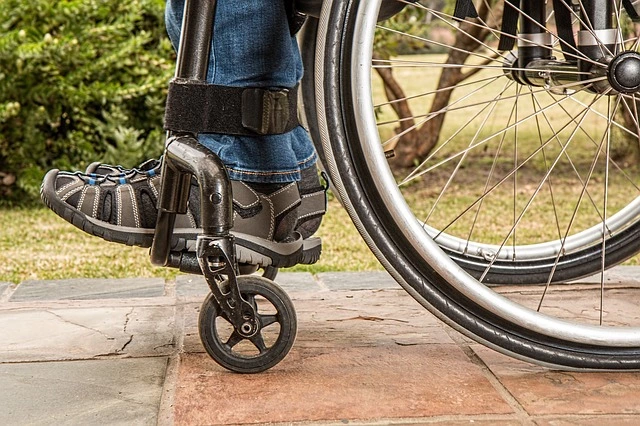Medical insurance provides financial coverage for your medical expenses in the event of hospitalization. Health Insurance Riders are supplementary coverage options available for purchase by Policyholders in addition to their basic health insurance plan. Given the escalating costs of healthcare, possessing health insurance has become a crucial necessity in today’s world. Nevertheless, even the most comprehensive policies might not address all of your individual needs. Yet, you have the opportunity to bridge that gap and tailor your policy according to your specific requirements by incorporating riders into your coverage.
What is Health Insurance Rider?
Health Insurance Riders refer to additional provisions or enhancements that can be added to a basic health insurance policy.
These riders offer policyholders the opportunity to customize their insurance plans according to their specific needs by adding specific benefits or coverage areas that might not be included in the standard policy.
Riders allow individuals to address gaps in their health insurance coverage without having to purchase an entirely separate policy. By paying an extra premium, policyholders can gain access to specialized coverage that aligns with their unique circumstances, preferences, or potential medical needs.
Examples of health insurance riders might include coverage for specific medical conditions or treatments, maternity coverage, dismemberment coverage, critical illness coverage, and more. The availability of riders can vary depending on the insurance provider and the specific policy.
Add-ons to health insurance or riders can be added on or over your current health insurance plan to increase the coverage or amount insured to be used in certain events.
According to IRDAI, The collective premium for all riders or additional add-ons covered under a single health insurance policy should not exceed 30 percent of the initial premium amount.
For example, you can take advantage of an insurance policy for a Family Floater insurance policy for about Rs. 15000 per annum for an amount of Rs. 10,00,000. If you decide to add five add-ons to your health insurance plan.
If so, the cost you’ll have to pay for the add-ons should not exceed the amount of Rs. 4,500 (15,000 * 30 %) according to the regulations outlined by IRDAI.
In essence, health insurance riders offer a way to tailor a health insurance policy to suit individual requirements and provide a higher level of coverage beyond the basic plan.
The Type of Rider
1. Critical Illness Rider
Critical illness insurance plans operate on a fixed benefit basis. This signifies that when you add a critical illness rider to your standard health plan, you qualify to receive a predetermined sum of money in the event of being diagnosed with a critical ailment listed in the policy document.
This predetermined amount will be provided to you regardless of the actual expenses you may have incurred for your medical treatment.
You’ve bought an insurance policy for health with the amount insured of Rs. 5 lakh. If you decide to take advantage of an add-on for critical illness insurance that provides a guaranteed amount that is up to you.
If you take rider of Rs. 15 lakhs.
If you’re diagnosed with cancer and file an insurance claim through the company, it will pay a lump sum of Rs. 15 lakh, even if the total cost of treatment is approximately Rs. 8 lakh.
2. Hospital Cash
This policy pays a predetermined amount in the event of hospitalization.
This is a great benefit for any miscellaneous expenses incurred during the hospital stay.
With this health insurance rider, you will receive a daily cash allowance from the insurance company when you are hospitalized.
The insured patient must be in hospital for longer than 24 hours or one day to qualify for the amount. It’s a way to pay for loss of earnings in hospitalization and is utilized to cover the costs like transportation and food costs.
3. Maternity:
The rider covers expenses that are related to childbirth, both Normal as well as Cesarean. It also covers any Medical Termination of Pregnancy Post-natal and Prenatal expenses and the costs associated with hospitalization for newborns.
Some insurance companies also offer insurance for the cost of childbirth or up to the policy’s maturity date or for up to three months from birth, with maternity coverage.
4. Out-Patient Dental:
This policy reimburses the costs associated with medically necessary dental procedures.
5. Contact Lenses, Hearing Aid, Spectacles
This rider pays for costs related to purchasing medically prescribed and essential aids.
6. Costs of Recovery:
A lump sum is added to the basic cover hospitalizations that follow for extended periods, generally longer than 10 consecutive days.
7. Personal Accidental Cover:
Apart from medical emergencies, this also covers life-threatening risks that are not medical emergencies.
This option provides financial protection in the event of accidental damage that the insured person suffers.
It includes partial disability, permanent disability, death, etc. If someone dies because of an accident, the deceased’s family members receive an amount in a lump sum under this additional clause.
8. Accidental Disability:
This protects from losses caused by total or partial temporary or permanent disability caused by accidents.
The cost of burns, Broken Bones, Costs for Funeral Rites, and other related expenses are protected.
9. Room Rent waiver
Hospital room rentals are limited to a specific limit in a typical health insurance policy. If you add an add-on for room rent waiver to these medical insurance plans, the policy raises the limit, or there is no limit.
If there is no cap, the room rental is allowed up to the amount of the amount insured.
It is an essential health insurance rider when you’re in a major city, in which hospital room rates are significantly more expensive.
10. Zone Upgrade
If you have the help of upgrading your zone, you will be able to get more financial assistance for treatment in various cities’ zones.
Zones are classified based on the medical expenses of the city. The greater the cost of medical care within a specific area and the greater the cost, the more it will be classified in this classification.
This feature lets you consider the differences in treatment costs among different zones or regions with an averagely higher cost. It also enables you to reduce your overall cost by 10% to 20%.
11. AYUSH Cover
You are able to get financial protection for hospital expenses associated with alternative treatment options that include Ayurveda, Yoga, Unani, Siddha, and Homeopathy.
Advantages of these riders:
Increases coverage at an affordable cost:
The addition of riders to your existing health insurance plan is required and beneficial as it broadens coverage and safeguards your family from unexpected circumstances.
This broadens the health insurance policy’s coverage, making sure that all the family members are equally covered and at a fair cost.
Reimbursement:
The amount of claim granted under rider’s plans is a lump sum therefore it is able to be used to pay for loss of income or to pay loans, mortgage, or debts and other obligations policyholders could incur because of their incapacitated work due to sickness.
The Waiver Premium:
You are able to benefit from the benefits of the health insurance policy following an accidental illness or critical illness.
The policy can be kept in this premium waiver option without having to pay the additional cost after you have used the service.
Flexibility in customization:
You can modify your rider plans to meet your needs. You may personalize your plan to add or remove features.
When you are considering purchasing a rider plan be sure to look at any medical information, existing illness, your financial budget, and other elements.
Conclusion
It is better to look at the insured’s current medical condition, medical history of the family, and lifestyle. To determine which additional services would be appropriate for the person prior to deciding on the appropriate ones.
The most common riders which may be purchased through an insurance policy include critical illness rider benefit rider and hospital cash benefits and many more.




